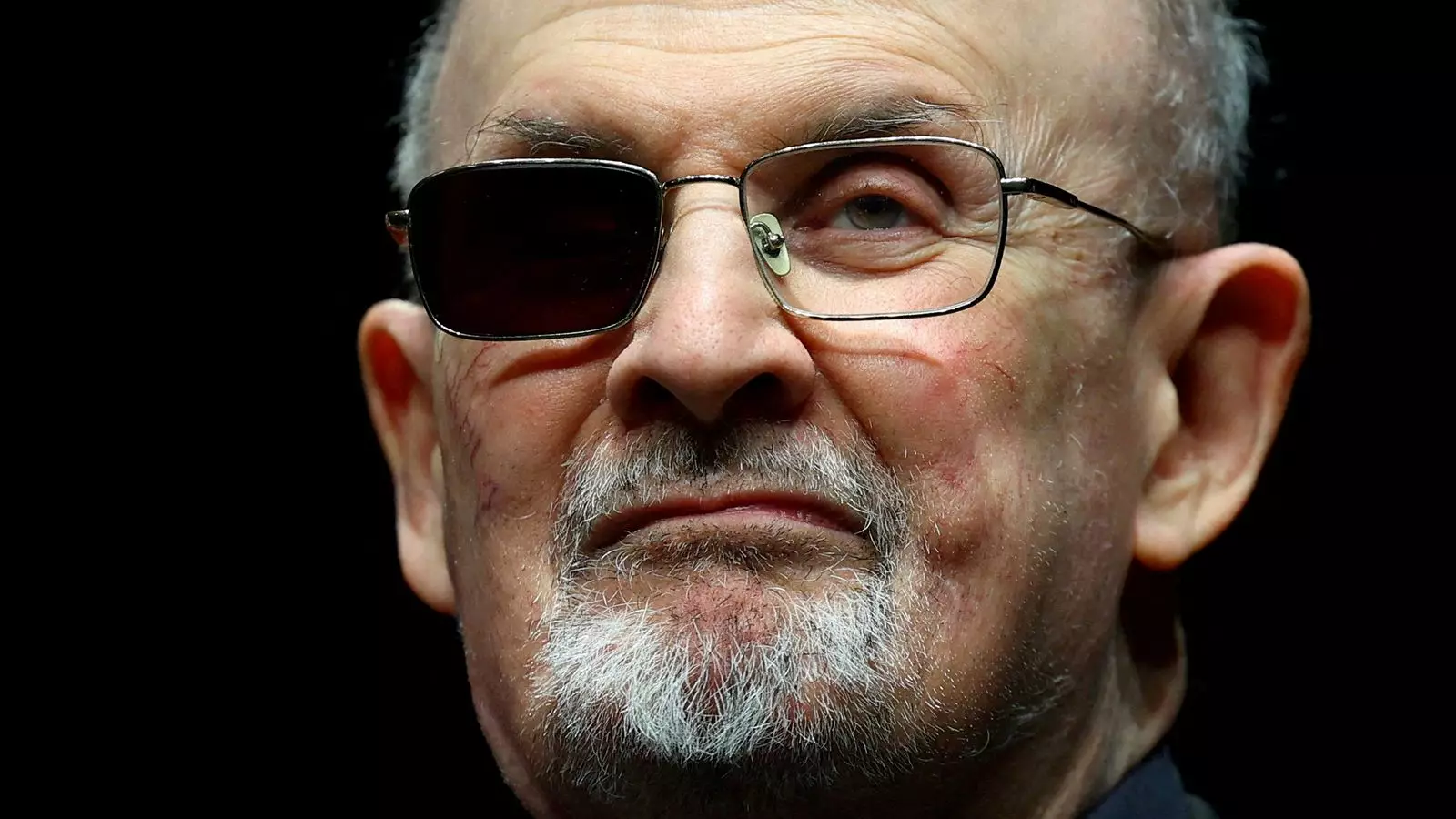In August 2022, the literary world was shaken by a brutal attack on renowned author Sir Salman Rushdie, who was grievously assaulted while preparing for a public lecture in New York. This incident serves as a poignant reminder of the threats that writers and intellectuals can face when their works challenge prevailing ideologies. Rushdie, a British-American novelist who has long been an advocate for freedom of speech, endured a devastating assault, leaving him physically scarred and emotionally shaken.
Sir Salman was preparing to address an audience at the Chautauqua Institution when he was attacked by 27-year-old Hadi Matar. Reports indicate that Matar rushed the stage and took Rushdie by surprise, inflicting multiple stab wounds with a ferocious intensity. The severity of the wounds included damage to Rushdie’s liver and intestines, as well as significant injuries to his right eye and hand. The grisly nature of the attack raises profound questions about motivation, intent, and the implications for artistic freedom in a world where individuals feel justified in resorting to violence.
After thorough deliberation, the jury found Matar guilty of attempted murder, delivering a verdict that seemed to resonate with the public’s deep concern regarding freedom of expression. It took the jury less than two hours to determine that Matar’s actions amounted to a deliberate and calculated attack on Rushdie. Additionally, Matar was convicted of assaulting Henry Reese, a fellow speaker that day. His muted reaction—reportedly mumbling a politically charged phrase as he left the courtroom—only served to underline the political contexts in which such violent acts are often framed.
Prosecutor Jason Schmidt presented compelling evidence, including video footage of the incident, which epitomized the attack’s unprovoked nature. Schmidt emphasized the targeted aggression displayed by Matar, suggesting that the premeditated nature of the attack not only aimed at Rushdie as an individual but also at the very ideals of free thought and expression. As the world shifts increasingly towards pop-culture and instant gratification, the implications of such violence against a literary figure can create a chilling atmosphere for discourse.
In stark contrast, Matar’s defense team struggled to persuade the jury of their claim that there was insufficient proof for intent to kill. The defense’s argument points to a broader issue: how does one ascertain true intent during a violent event? This dilemma further complicates the legal handling of politically or ideologically charged crimes. While the law may not capture the entirety of the violent act’s context, societal implications remain profoundly unsettling.
Rushdie’s harrowing experience and the consequences that followed highlight a critical need for society to reflect on the ever-present threats against artistic and literary expression. The author had previously dealt with severe backlash and death threats following the publication of his controversial novel “The Satanic Verses,” which many in the Islamic community found blasphemous. Matar’s actions echo a long history of violence meted out against those who dare to voice dissent or challenge convention.
As Rushdie himself recounted during the trial, the moment of the attack was marked not only by physical pain but also by a profound awareness of his mortality. The psychological ramifications of such violent encounters reach far beyond individual victims—they instill fear in other writers, limiting their creativity and willingness to explore critical societal issues.
Freedom of expression is often touted as a cornerstone of democratic ideals, yet incidents like Rushdie’s attack challenge these principles. Advocates for literary freedom frequently argue that society has a responsibility to defend authors and intellectuals against violence to ensure that diverse narratives continue to flourish.
Sir Salman Rushdie’s recovery, both physically and emotionally, will be a long and arduous journey. Yet, his survival symbolizes resilience in the face of profound adversity. As the authorities and legal systems address Matar’s sentencing in April and potential further actions regarding terrorism allegations, the broader lesson remains: true progress must encompass fostering an environment where creative voices are uplifted rather than silenced by fear.
The stakes have never been higher for those who engage in the written word. This incident serves as a reminder that there must be an unyielding commitment to support and protect those who dare to challenge the status quo, ensuring that literature remains a thriving platform for dialogue, dissent, and diverse perspectives.


Leave a Reply